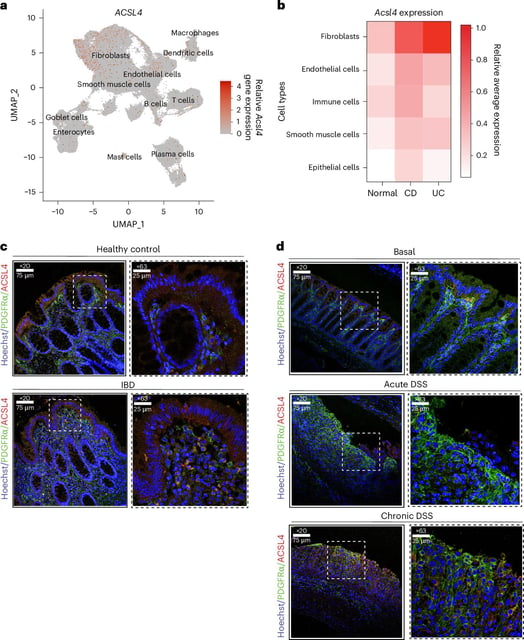Overview
- ACSL4 is markedly overexpressed in intestinal fibroblasts from human IBD samples and mouse models of chronic colitis.
- Fibroblast-specific elevation of ACSL4 increases lipid hydroperoxide production and amplifies epithelial ferroptosis, intensifying gut inflammation and tissue damage.
- Genetic deletion or pharmacological inhibition of ACSL4 in fibroblasts significantly reduces colitis severity and preserves epithelial cell integrity in murine IBD models.
- Clinical trials of broad-spectrum antioxidants have fallen short, highlighting the need for precise molecular targets such as ACSL4 and ferroptosis inhibitors.
- The identification of fibroblast ACSL4 as a biomarker paves the way for patient stratification and personalized therapeutic regimens in inflammatory bowel disease.
